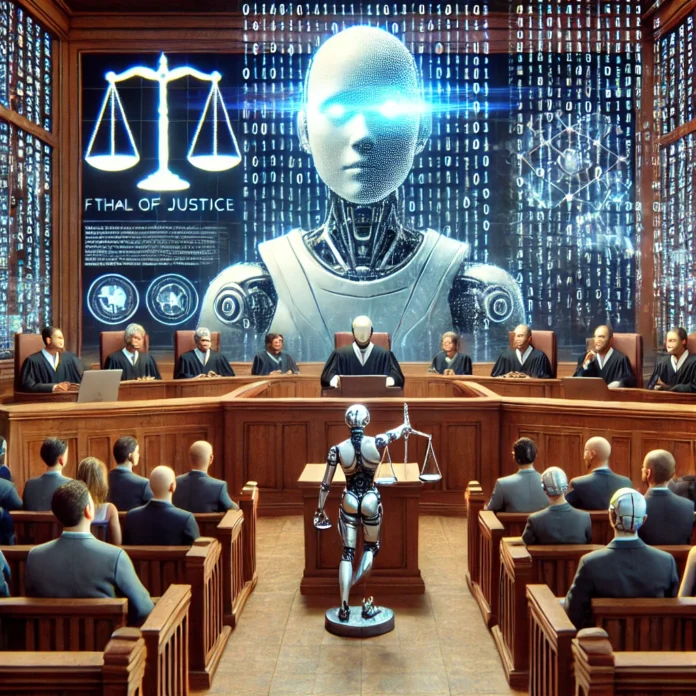The integration of Artificial Intelligence (AI) into the legal system is reshaping how justice is administered, offering efficiency and cost-effectiveness. From case analysis to predictive analytics, AI-powered tools promise to streamline legal processes and make justice more accessible. However, the use of AI in legal decision-making raises profound ethical dilemmas, particularly concerning fairness, accountability, and the risk of bias. Can algorithms, devoid of human empathy and moral reasoning, truly deliver impartial judgments?
AI in the Legal System: Current Applications
AI is already being employed in several areas of the legal system:
- Legal Research: Tools like ROSS Intelligence and Casetext help lawyers sift through vast legal databases, identifying relevant precedents and statutes in minutes.
- Predictive Analytics: Platforms such as COMPAS (Correctional Offender Management Profiling for Alternative Sanctions) predict the likelihood of recidivism, influencing decisions on bail, sentencing, and parole.
- Document Review and Contract Analysis: AI tools automate the review of legal documents, detecting inconsistencies, and streamlining processes in corporate law and litigation.
These applications save time, reduce costs, and improve the efficiency of legal professionals.
The Promise of Fairer Judgments
Advocates argue that AI could mitigate human biases in the legal system. Human judges and jurors are influenced by personal prejudices, emotions, and external factors. AI, in theory, could process cases based solely on data, ensuring uniformity and impartiality. For example, algorithms can analyze case histories and provide recommendations based on established patterns, reducing disparities in sentencing.
Moreover, AI can enhance access to justice by providing affordable legal assistance to underserved populations. Tools like DoNotPay, an AI-powered chatbot, help users contest parking tickets, file complaints, or draft legal documents without the need for expensive lawyers.
The Ethical Dilemmas of AI in Justice
1. Algorithmic Bias
Despite its promise of impartiality, AI is not free from bias. Algorithms are trained on historical data, which may reflect systemic inequalities. For instance, studies of the COMPAS system revealed racial disparities in predicting recidivism, where Black defendants were more likely to be classified as high risk compared to their white counterparts. This raises concerns about perpetuating existing injustices rather than eliminating them.
2. Lack of Transparency
AI systems often function as “black boxes,” where their decision-making processes are opaque even to their developers. This lack of transparency undermines accountability in the legal system, making it difficult to challenge or review AI-generated outcomes.
3. Absence of Human Judgment
Justice is not merely about applying rules; it involves moral reasoning, empathy, and understanding of context. AI, as a purely data-driven tool, cannot account for the nuances of individual cases or the human emotions that underpin ethical decisions.
4. Data Privacy Concerns
The use of AI in the legal system involves processing sensitive personal data, raising concerns about data security and misuse. Without strict safeguards, the potential for breaches and ethical violations increases.
Striking a Balance
To leverage AI effectively in the legal system, it is essential to address these ethical dilemmas. Developers must prioritize transparency, fairness, and accountability in AI algorithms. Human oversight should remain central, ensuring that AI serves as an aid rather than a replacement for moral judgment. Additionally, efforts to eliminate bias in training data and implement robust privacy protections are crucial to fostering trust in AI-driven legal processes.
Conclusion
AI has the potential to transform the legal system, making it more efficient, accessible, and consistent. However, its integration must be approached with caution to ensure that it upholds the principles of fairness and justice. While algorithms can analyze data and predict outcomes, the essence of justice—a balance of law, ethics, and empathy—remains a uniquely human responsibility.





